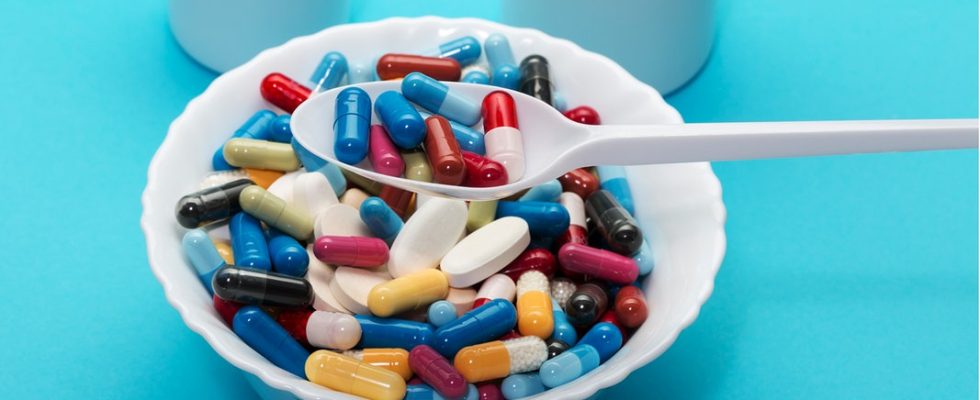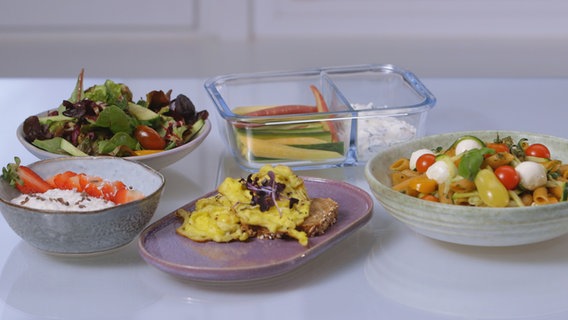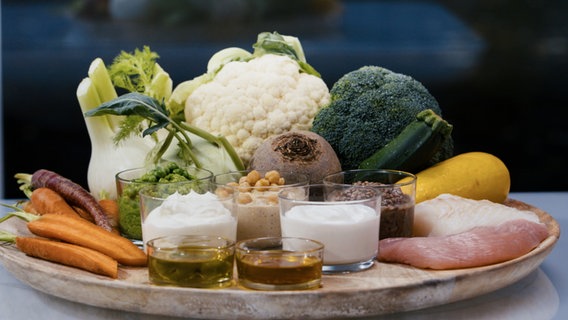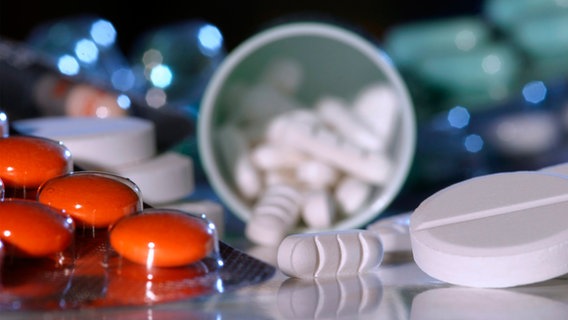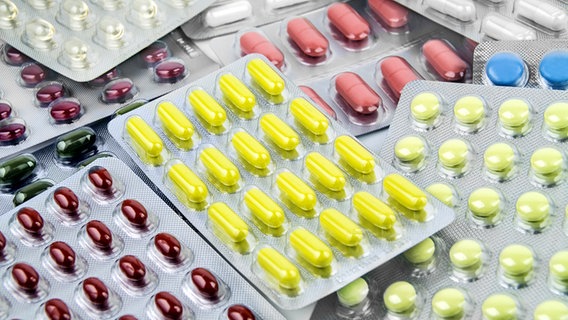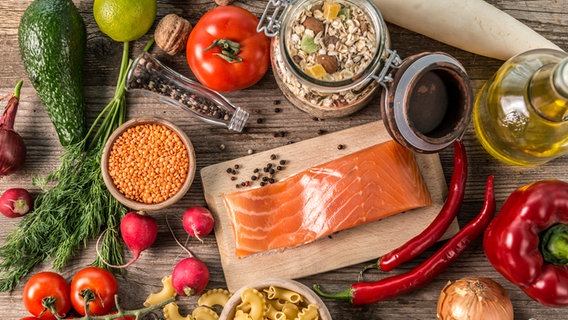As of: February 6, 2024 6:25 p.m
If you have to take medication, you should avoid some foods because they can cause interactions when combined. The effect of the medication can be strengthened or weakened.
Wash down the iron tablet with coffee, the blood pressure lowering medication with grapefruit juice? Don’t! Many medications are not compatible with certain drinks or foods. This means that interactions can occur because the food enters into a chemical process with medicinal substances. The effect of the medicines may be reduced or increased. Dangerous side effects are possible.
Antihypertensive: Be careful with grapefruits
Grapefruits or grapefruit juice react strongly with medications that lower blood pressure (calcium channel blockers). The citrus fruits first inhibit the breakdown of the active ingredients, so that too much of it remains in the blood and the drug cannot be broken down evenly. This increases the effect of the antihypertensive drugs. A life-threatening drop in blood pressure can occur.
Interactions with antibiotics: It is better to avoid these foods
Interactions with antibiotics mainly occur Grapefruits, alcohol as well as caffeinated drinks on. For example, the antibiotic causes the body to break down caffeine more slowly. Sleep disorders and heart palpitations can result. Also, if you have to take antibiotics, Dairy products (milk, quark, yoghurt, cheese) and mineral water containing calcium avoid. Calcium makes the antibiotics less effective. If you still don’t want to do without dairy products, you should definitely allow at least two hours between taking the medication and consuming the dairy products.
Iron supplements: Avoid coffee, certain teas and vegetables
You should avoid taking medications that contain iron black or green tea and Coffee. The tannins it contains, the tannins, bind iron ions in the stomach. The iron therefore cannot be absorbed by the body. This also happens when eating foods at the same time Oxalic acid contain such as spinach, beetroot or rhubarb. It’s also unfavorable phosphate. Cola, other soft drinks and processed cheese contain a lot of it. Phosphate also hinders iron absorption.
The effectiveness of anticoagulants can be increased or weakened
Vegetables such as lettuce, spinach, broccoli and various types of cabbage contain vitamin K. The anticoagulant effect of important medications Blood thinners or anticoagulants, can thereby decrease. Because vitamin K is responsible for the formation of blood clotting factors. Therefore, only eat appropriate foods in moderation.
You should also be cautious when it comes to drug interactions Goji berries and Pomegranate juice be. Their ingredients strengthen the effect of the anticoagulant. The risk of bleeding can increase dangerously. The same applies to Ginger and Garlic in large quantities (in the case of ginger, for example, more than 50 grams per day). Also: none Grapefruits or consume grapefruit juice.
Medication for diabetes: Be careful with alcohol
Anyone who suffers from diabetes and therefore takes medicines that affect blood sugar levels (for example biguanides such as metformin, glucosidase inhibitors such as acarbose, etc.) should do so no alcohol or consume foods containing alcohol: they lower blood sugar. This increases the effect of insulin or the diabetes medication taken orally. The consequences can last for hours. If insulin sprayed If you drink alcohol, you should combine it with a meal, i.e. eat something with the alcoholic drink to reduce the side effects.
Further information
Medications against osteoporosis may have a weaker effect
The tannins in green or black tea as in Coffee do not harmonize with calcium medications and bisphosphonates (medicines that interfere with bone metabolism). There should be at least an hour between eating and taking medication. Furthermore, it is advisable to calcium-rich foods (dairy products) and dietary supplements (unless explicitly discussed with a doctor) should be avoided completely. They lead to the effectiveness of the Osteoporosis medication is weakened.
Antidepressants: If possible, do not take them at the same time as food
Grapefruits can also increase or undesirably change the effects of medications for depression. Depending on the active ingredient of the antidepressant, this also applies Foods containing tannins (coffee, tea, wine).
One should Antidepressants not at the same time as the meal or drinks, but wait at least an hour. Anyone who uses antidepressants with so-called MAO inhibitors (e.g. tranylcypromine) should not eat foods at the same time Tyramine contain. The substance is mainly found in mature cheese, yoghurt, salami, soy products, chocolate, dried fruits and red wine. A massive increase in blood pressure can be the result.
Further information
If you are taking immunosuppressants: avoid foods with a lot of potassium
Foods rich in potassium can counteract the effects of medications that protect people from excessive immune system reactions. Large amounts of potassium are found in dried fruit, bananas and legumes as well as in kohlrabi, cauliflower, broccoli and kale.
Also here are again Grapefruits or grapefruit juice is unfavorable for the effectiveness of immunosuppressants. The ingredients cause the medication to be broken down more slowly and then have too strong an effect (not “dosed” by a normal breakdown rate).
Prevent risks of interactions
Before taking a new medication, you should ask the pharmacy whether there is a risk of interactions. There – or already at the doctor’s office intake schedule arrange for the medication. The medication plan can also help you keep an eye on the intake schedule and dosages.
Further information


